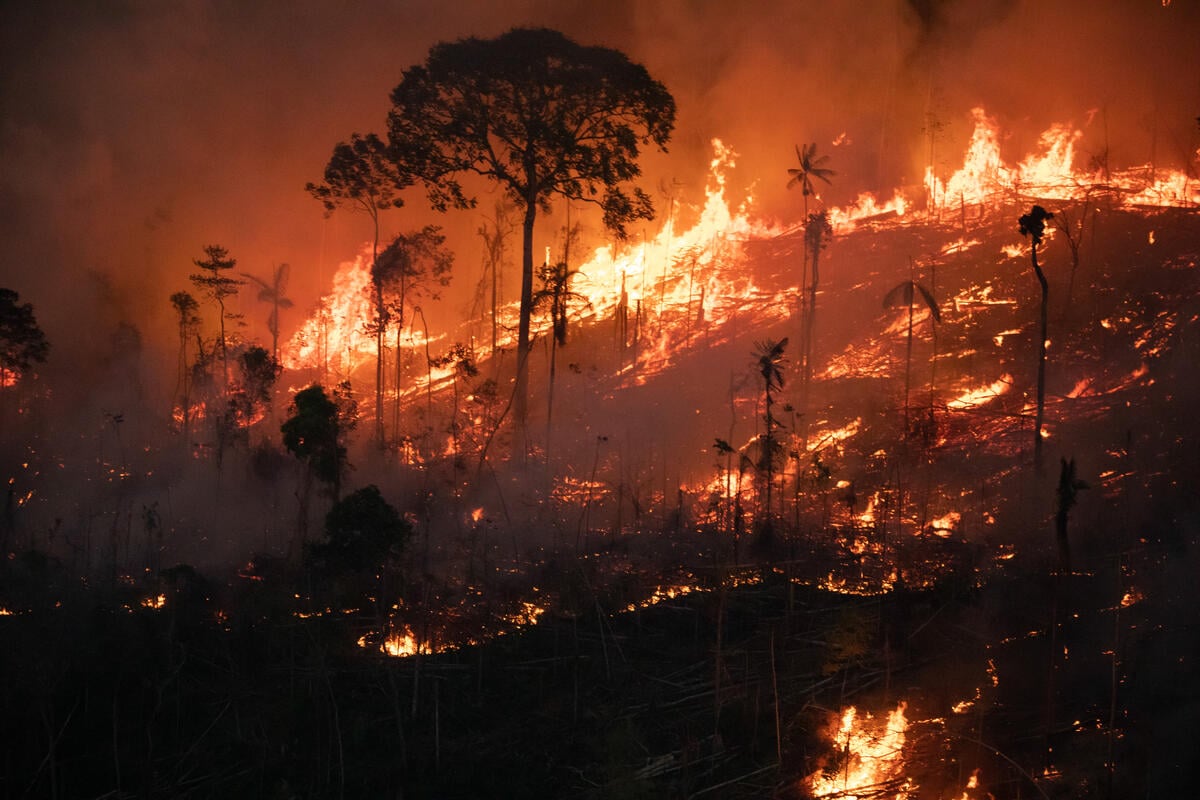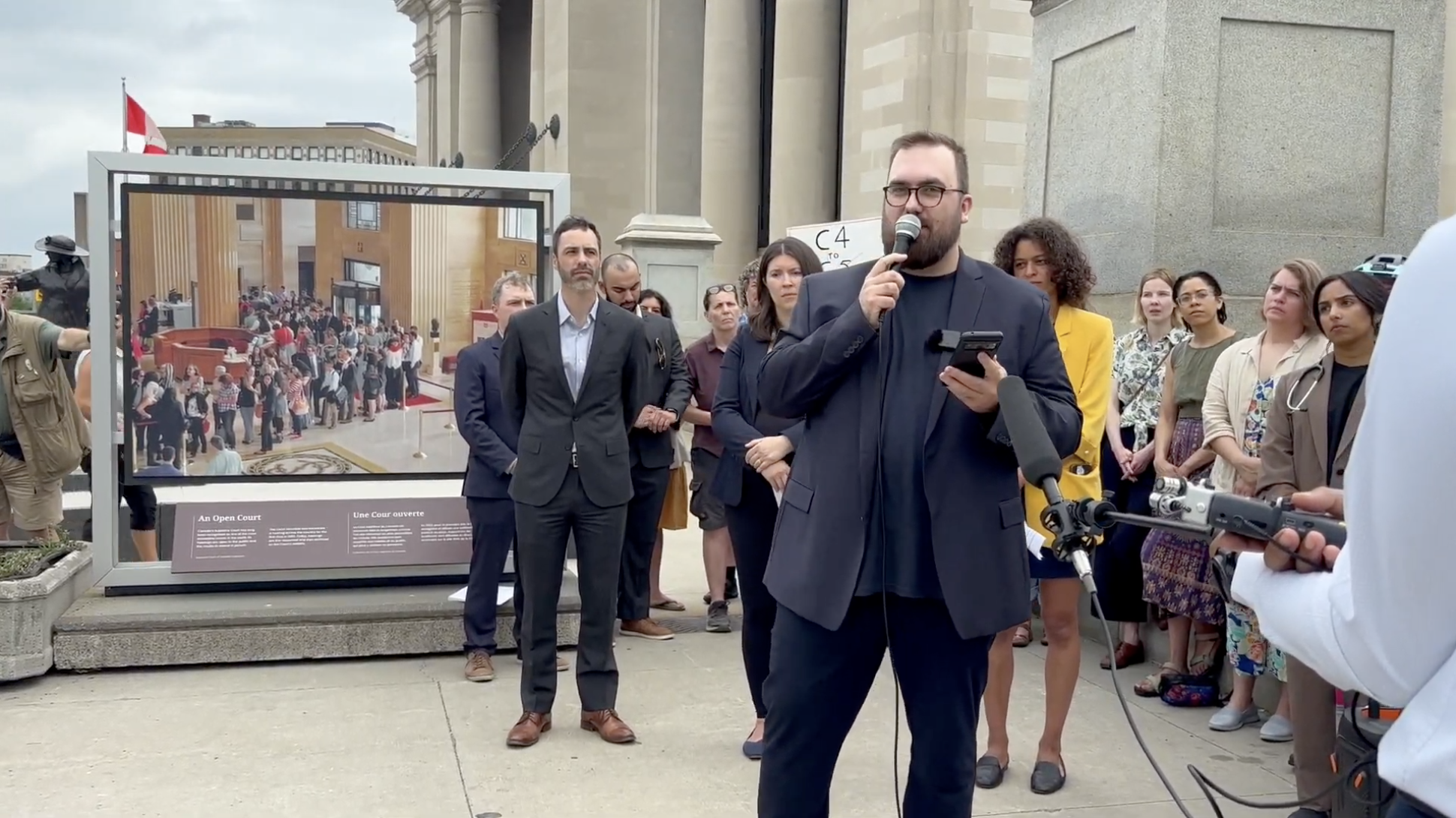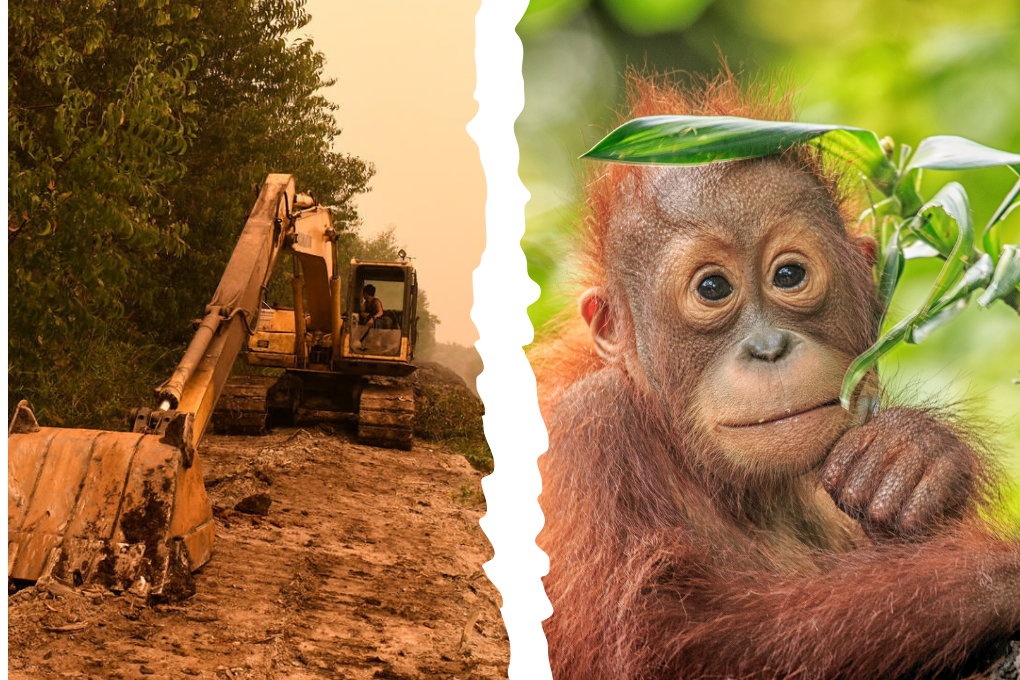
Palm oil from rainforest destruction threatens our climate, communities and wildlife around the world.
And it’s everywhere we go, making its way into chocolate bars, potato chips, shampoo and even toothpaste. It’s so pervasive that Canadian farmers are even using it to feed cows, as we learned during the recent “Buttergate” scandal.
But did you know that Canada’s federal government has a big role to play in rising consumption? Read on to learn more and take action.
Palm oil imports – the trade connection
While we were digging into “Buttergate” a little deeper, Greenpeace discovered and exposed that there is a huge risk we could end up with even more palm oil on our shelves and in our kitchens if a trade deal goes through with Indonesia, the largest palm oil producer in the world.
Right now, the federal government is considering a “Canada-Indonesia comprehensive economic partnership agreement”. A previous deal involving Malaysia and Singapore made palm oil imports cheaper, including “for use in the manufacture of animal feed.” Given this precedent, there is reason to believe that similar measures are likely in any deal with Indonesia.
We also learned that palm oil imports to Canada are up a massive 1,600% in the past 20 years. So any deal that opens the door to even more destructive palm oil would be a disaster.
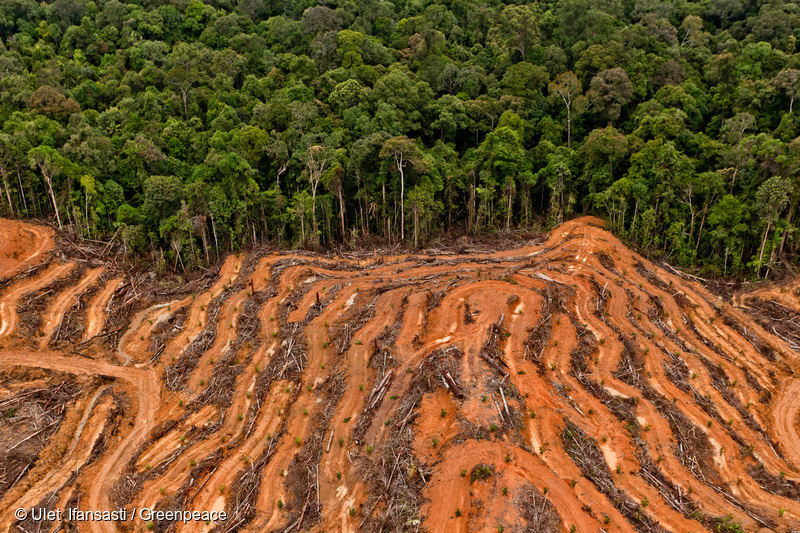
Canada’s “deforestation footprint”
New research released last week revealed how many developed countries are encouraging deforestation in poorer nations through international trade. Canada’s “deforestation footprint”, sadly, is huge. This means that a lot of the products and food we consume in Canada are causing deforestation beyond our borders, particularly in tropical countries.
As Dr Daniel Moran explains:
“It’s easy to look at the farmers, foresters and countries where deforestation is occurring and wish they would stop. But they are responding to signals from the global market. We are buying their soy as feed for our hamburgers and their palm oil as input to our lipstick.”
In other words, if we are serious about climate change, species extinction and building a healthy food system, then we need to take a good hard look at the trade deals fueling rainforest destruction around the world and bringing the proceeds here to Canada.
Fueling fires, disease and extinction
Large areas of Indonesia’s forest grow in deep, swampy peat which stores huge quantities of carbon. Oil palm plantations need dry land, so water is drained from the peat, making it very flammable. Fires can rage out of control, releasing yet more carbon dioxide and in 2019 caused severe respiratory illnesses for hundreds of thousands of people. Scientists have even identified a link to an increase in viruses such as COVID-19 and diseases such as malaria.
Most Indonesian plantations are on the islands of Sumatra and Borneo, where forest destruction has pushed all three species of orangutans to ‘critically endangered’ status. Borneo has lost nearly 150,000 orangutans over the last 16 years. And according to the International Union for Conservation of Nature (IUCN), “oil palm expansion could affect 54% of all threatened mammals and 64% of all threatened birds globally.”
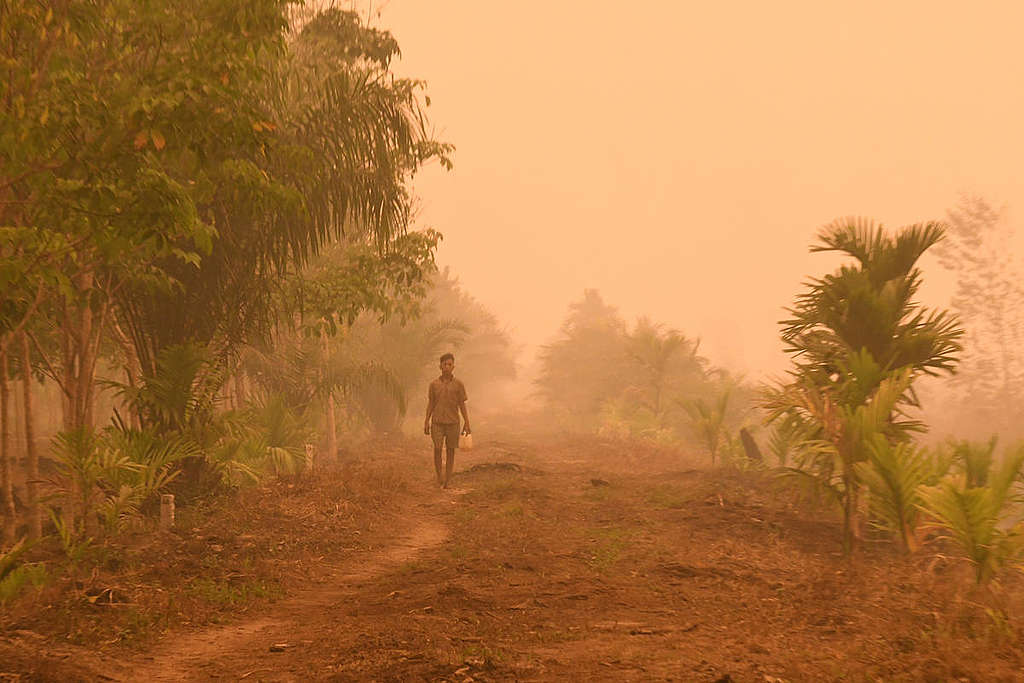
An alternative vision
The Prime Minister and his government talk a lot about action on climate change and biodiversity loss, but our palm oil imports keep rising. And they have not offered to help Canadian farmers get it out of dairy production.
That’s not good enough.
Instead of more deals in rainforest destruction, we should be protecting the world’s forests, supporting Indigenous and local communities and growing local food resilience.
Our trade deals should be reducing our addiction to palm oil and advancing our global commitments, such as the Paris Climate Agreement, the Convention on Biological Diversity, and the Declaration on the Rights of Indigenous Peoples.
Close the door on dirty palm oil
The mandate of our Minister for International Trade, Mary Ng, describes “promoting a cleaner environment” as a top government priority.
Tell Minister Ng to take this seriously and shut the door to dirty palm oil.

